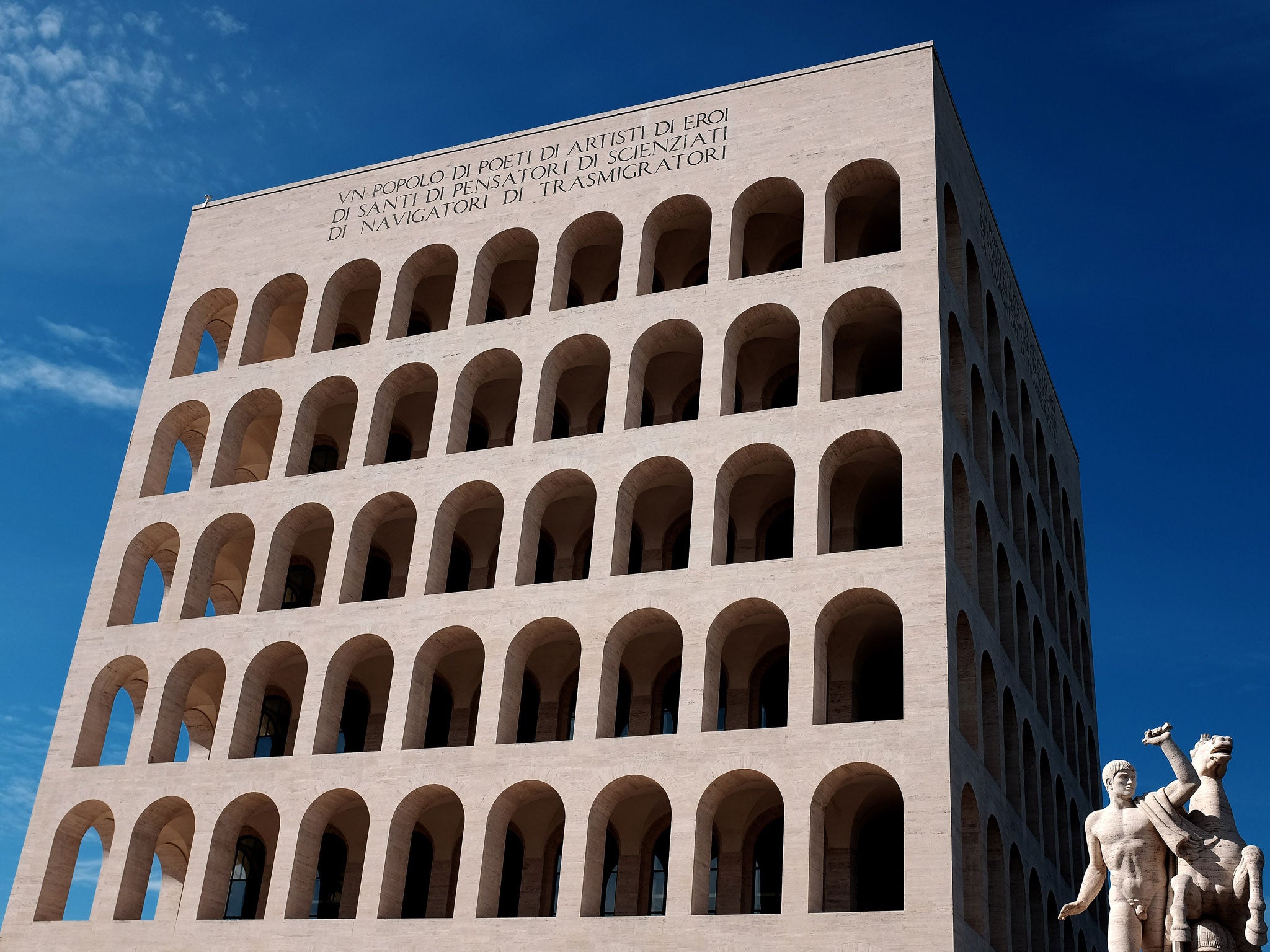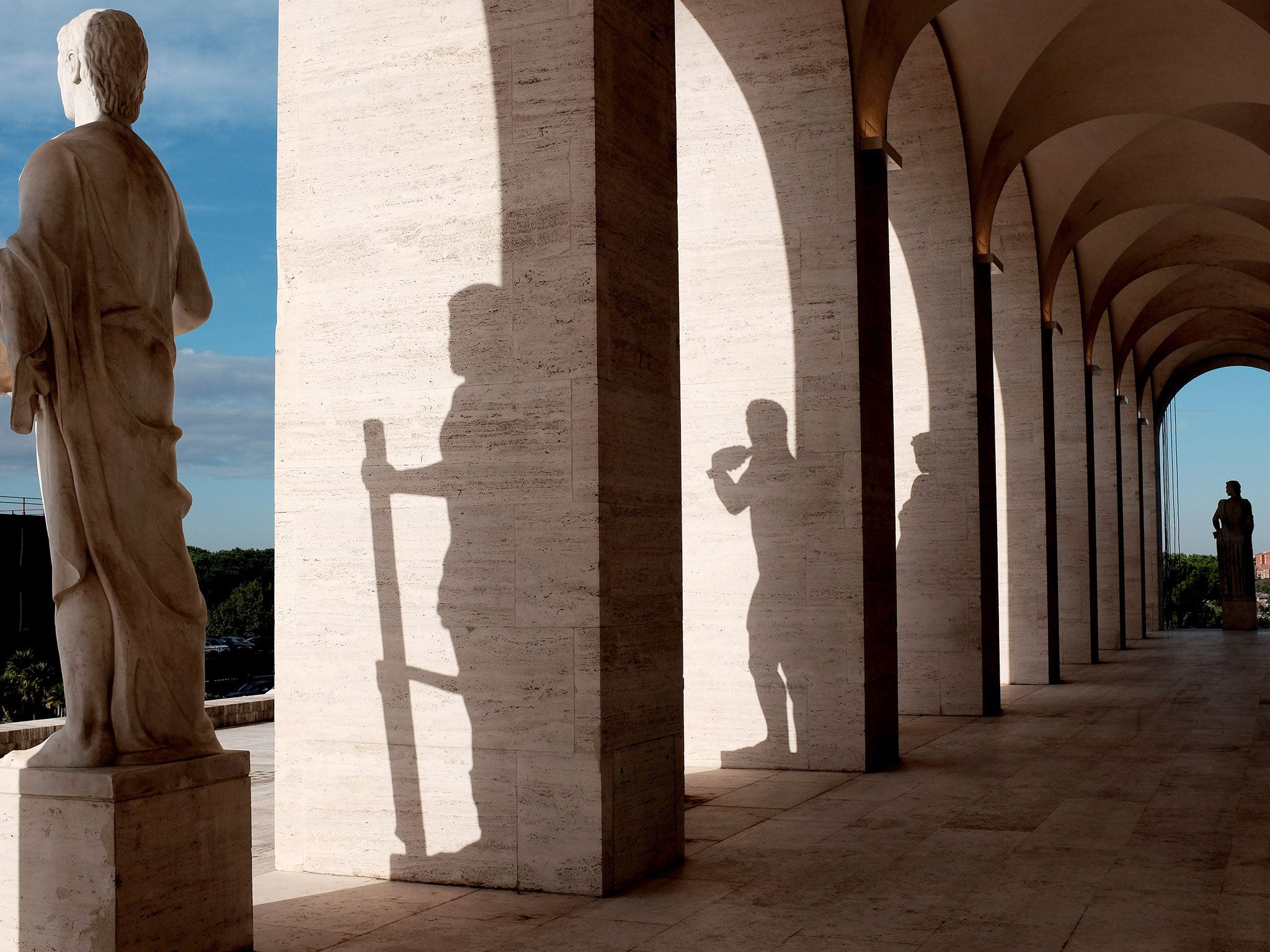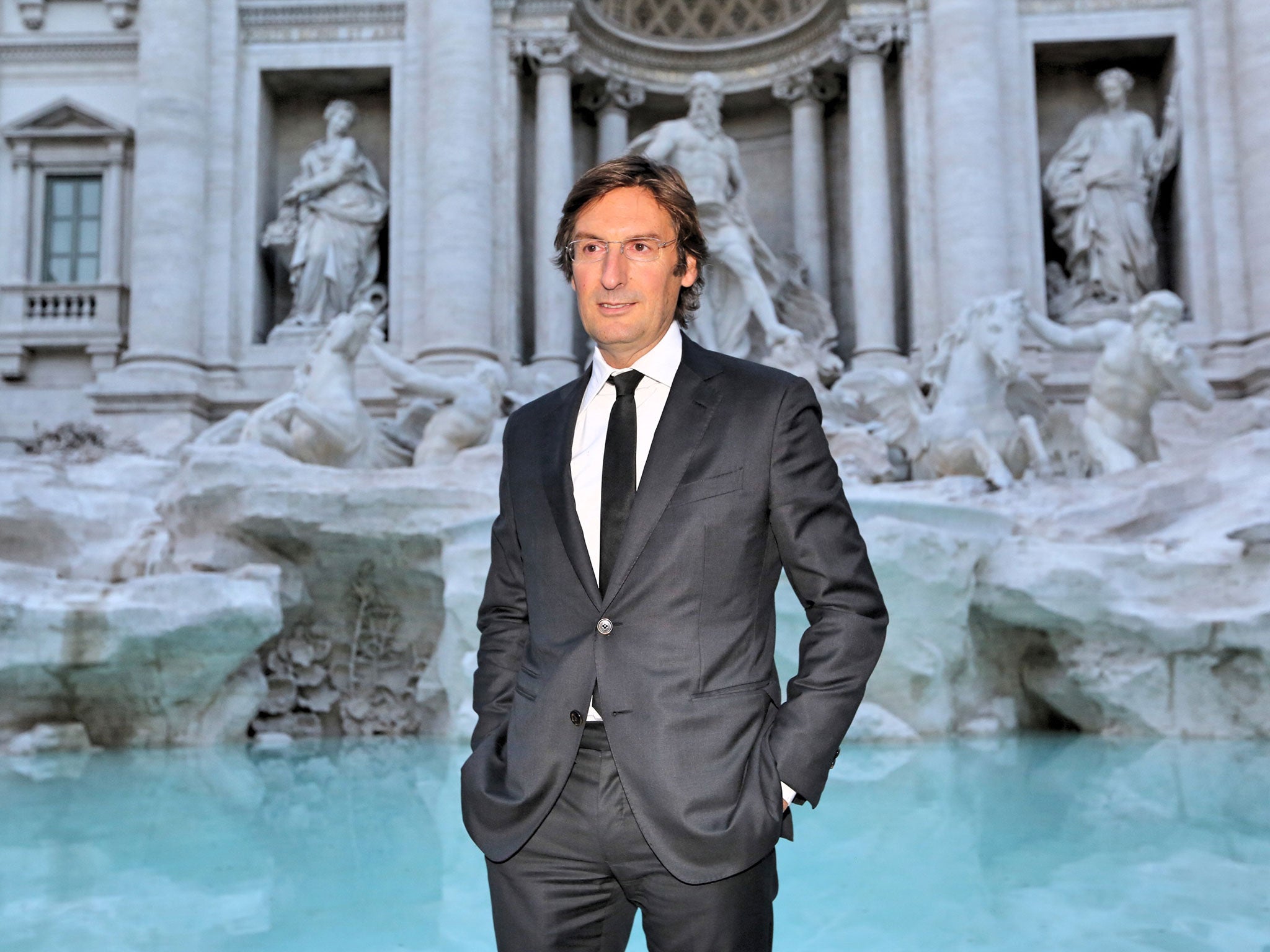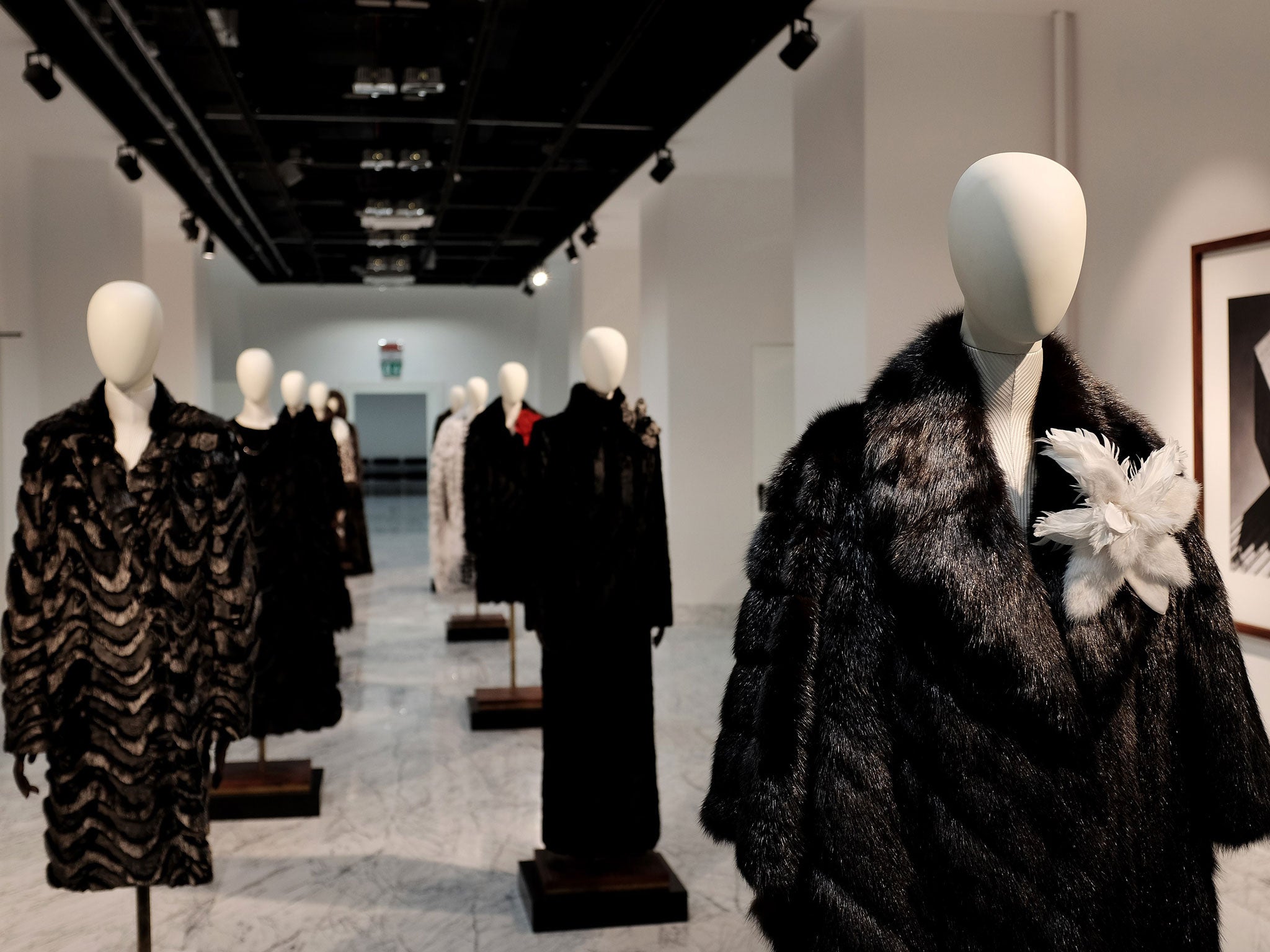Fendi's pair of palazzos indicate grand designs on 21st-century luxury
Alexander Fury speaks exclusively to the fashion label's CEO, Pietro Beccari

Your support helps us to tell the story
From reproductive rights to climate change to Big Tech, The Independent is on the ground when the story is developing. Whether it's investigating the financials of Elon Musk's pro-Trump PAC or producing our latest documentary, 'The A Word', which shines a light on the American women fighting for reproductive rights, we know how important it is to parse out the facts from the messaging.
At such a critical moment in US history, we need reporters on the ground. Your donation allows us to keep sending journalists to speak to both sides of the story.
The Independent is trusted by Americans across the entire political spectrum. And unlike many other quality news outlets, we choose not to lock Americans out of our reporting and analysis with paywalls. We believe quality journalism should be available to everyone, paid for by those who can afford it.
Your support makes all the difference.Fashion houses are all keen to see themselves as more than that, these days. Fashion is ephemeral, fickle. How about luxury? Sounds much more impressive. Of course, luxury isn't just limited to the clothes on your back. It's about lifestyle, another word brands are keen to ally themselves to. Which is why last week Fendi elongated the already strung-out fashion month calendar by jetting a selection of press and ambassadors (brand ambassadors I mean – of the Kendall Jenner sort, mostly) to celebrate the inauguration of the Fendi palazzo.
Fendi actually has two palazzos – its new one is on Via dei Condotti, in the heart of Rome. It's really the Fendi boutique and formerly a clutch of corporate offices, which has been rehauled to expand said shop and encompass a restaurant (an outpost of the modern Japanese restaurant Zuma, full of rich food), a fur atelier (for very rich people to have very expensive coats made), and a private apartment (invite-only, for the richest people to entertain in the grand style). The other palazzo is formally known as the Palazzo della Civiltà Italiana, where those corporate offices have relocated to. On the outskirts of Rome, it's also known as the square colosseum, a key piece of Fascist architecture which now houses every facet of Fendi. There is an exhibition space on the ground floor, which has greeted some 36,000 visitors to an area of Rome previously abandoned and now ripe for regeneration. Tourists flock there to take pictures. The building was used in the latest Zoolander film.

In the perpetual search for culture to couple with fashion, Fendi has effectively played the trump card. The label is fortunate in that it's based in Rome, known as a capital of culture rather than fashion, which in Italy clusters around Milan (proximity to manufacture and the silks of Como helped to determine that). The geographical distance is matched by ideology: whereas Prada, say, creates a contemporary art foundation or Armani erects "Silos", a museum filled with his greatest hits, Fendi helps to restore the Trevi fountain (with a £2.4m contribution) and revitalise heritage sites.
These are big, bold, sweeping statements – indicative of the house's strength, staging shows with coats costing a million euros, posting turnover that has broken the billion-euro mark. "Tying and connecting our name to Rome –doing something good for the city – I believe benefits also Fendi, and the image of Fendi," says Pietro Beccari, the gregarious 48-year-old CEO of Fendi. He's talking on the phone from Rome, from his seat in Fendi's colosseum, about Fendi's palazzo. "People, yes, recognise the products, but they want to share something more than just products." This is key to Fendi's thinking – mimicked across fashion, not only in Italy. Louis Vuitton opened a public art space in Paris, but it also stages grand shows in far-flung location, offering clients in, say, Palm Springs (where its May 2015 show was) or Rio de Janeiro (where a show is slated for this May) the chance to experience something other than purchasing a handbag.

Of course, the aim is, ultimately, to get them to purchase many more handbags. "A real luxury experience," is Beccari's turn of phrase for customers' immersion in the brand upon entering the new palazzo, which for him embodies "our [Fendi's] idea of beauty, and beautiful. I think that's very unique. People don't just want to come to a brand, buy a product and go. They want to hear why they should come to you. They want to share a set of values. It's a statement for what we stand for."
It's also interesting in a wider sense, in the direction that luxury retailing and its interaction with its customers may take in the coming years. Fendi isn't a small, isolated company – although it may seem it, pottering about its palazzos in Rome – it is a key element in the behemoth luxury conglomerate LVMH, whose overall turnover for 2015 stands at around £27.89bn. Fendi's new store stands out from others not because of its breadth – many boutiques boast far more impressive square-footage – but because of its depth, a single building encompassing a hotel, restaurant, showroom and atelier. The latter is important, for Beccari. "Now the super-cool thing is to eat in the kitchen with the chef," he says – subconsciously distancing himself from fashion, again, when discussing Fendi. "Our atelier is our kitchen – to show people how we do things, why they are so expensive. It's a new way to live luxury today, in total transparency."

Obviously the atelier isn't the true messy, creative guts of the operation – Karl Lagerfeld, Fendi's veteran creative director since 1965, won't be seen padding the halls designing his next collection. It's kind of like a show home for its craft – but it's still real. And that notion of transparency – of experiencing luxury – may well be where fashion will wind up next, moving away from the hyper-glossy super-stores that have dominated high fashion retail, and offering something with a little more soul.
"It's a way to identify ourselves," states Beccari. Which, in an over-crowded luxury marketplace, is all-important.
Join our commenting forum
Join thought-provoking conversations, follow other Independent readers and see their replies
0Comments